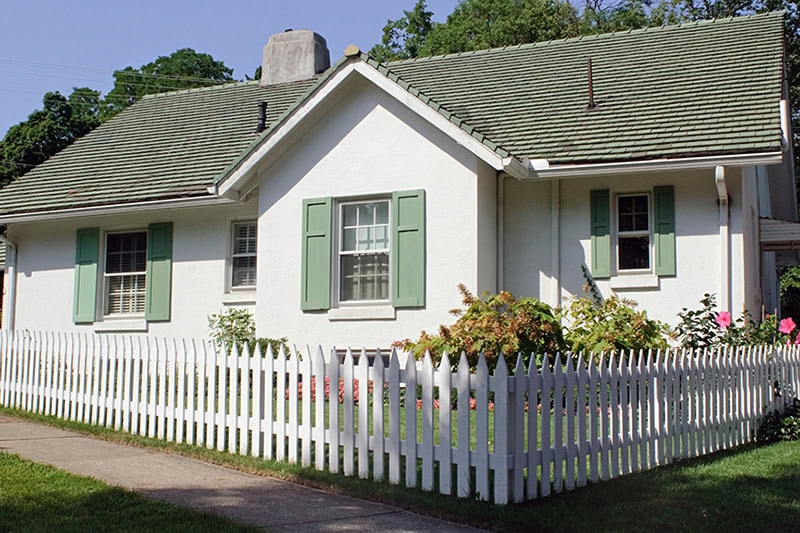How to Choose the Right-Sized Generator for Your Fort Worth Home

Want to know the most challenging part of buying a whole-home generator for your Fort Worth home?
Figuring out the right-sized generator to accommodate your needs. And that’s where Generator Authority can help.
Once you tell our expert generator installers which appliances you want to run in a power outage, our team will do all the necessary calculations to install the right-sized generator for your home.
We’ll find the best place in your yard to install the generator, connect the gas line, and show you how to maintain it.
Our team at Generator Authority will be there to help however we can from the moment you decide you need a generator to the moment you switch it on.
Choosing the Right Generator for Your Fort Worth Home
Power outages are more than just an inconvenience; they can disrupt daily life, compromise safety, and even cause financial losses.
A standby generator offers peace of mind, ensuring your essential appliances continue running when the power goes out. But one of the hardest parts of buying a standby generator is figuring out what size you need.
Too small, and it won’t power everything you need. Too large, and you’ll waste money on the unit and fuel. This guide will walk you through the process of choosing the right-sized generator for your home.
Power Outages in Texas
Being prepared is key. That’s where Generator Authority can help.
Understanding Wattage: The Key to Generator Sizing
Generators are rated in watts, which measures the amount of power they can produce. Understanding the different types of wattage is crucial:
- Running Wattage: This is the continuous power needed to keep an appliance running.
- Starting Wattage: Many appliances, especially those with motors (like refrigerators), require a surge of power to start up, often several times their running wattage.
- Surge Wattage: This is the maximum power a generator can briefly provide, accommodating those starting surges.
Why Correct Generator Sizing Matters
Choosing the right generator size is essential for several reasons:
- Performance: A correctly sized generator will reliably power your chosen appliances during an outage.
- Efficiency: An appropriately sized unit operates more efficiently, saving you money on fuel.
- Cost: A smaller generator is generally less expensive to purchase and maintain.
- Safety: Overloading a generator is a fire hazard.
Essential Appliances: What Do You Need to Power?
The first step is to make a list of the appliances you absolutely need to run during a power outage. Prioritize essential items:
- Refrigerator: Crucial for preserving food, especially in warmer climates.
- Freezer: Prevents food spoilage, similar to the refrigerator.
- Heating and Cooling Systems: Maintaining comfortable temperatures is vital, especially during extreme weather.
- Lighting: Essential for safety and navigation within your home. Focus on key areas.
- Medical Equipment: If anyone in your Fort Worth home relies on life-sustaining medical devices, this is a top priority.
- Well Pump: If you rely on a well for water, this is a must-have.
- Communication Devices: Keep phones and the internet running to stay informed and connected.
Calculating Your Power Needs: A Step-by-Step Guide
- List Appliance Wattages: Each appliance’s running wattage is listed on its label or in the owner’s manual.
- Calculate Total Running Wattage: Add up the running wattages of all the appliances you want to run simultaneously.
- Determine Starting Wattage: For appliances with motors, estimate the starting wattage. This is often 2-3 times the running wattage. You can also often find this information on the appliance label.
- Calculate Total Starting Wattage: Since you won’t start all your motor-driven appliances simultaneously, you’ll need to make an educated guess as to the largest starting wattage draw. Typically, you’ll take the largest starting wattage and add it to the other running wattages.
- Add a Safety Margin: It’s wise to add a 20% safety margin to your total wattage calculation. This accounts for unforeseen power demands and allows for future additions.
Example Calculation:
Let’s say you want to run a refrigerator (running wattage: 150W, starting wattage: 600W), a furnace (running wattage: 500W), and some lights (running wattage: 200W).
- Total Running Wattage: 150W + 500W + 200W = 850W
- Largest Starting Wattage: 600W (refrigerator)
- Total Starting Wattage: 600W + 500W + 200W = 1300W
- Add 20% Safety Margin: 1300W x 1.20 = 1560W
In this example, you’d need a generator with a starting wattage of at least 1560W. Our expert technicians at Generator Authority will conduct a thorough assessment of your home’s power needs and review the calculations with you, ensuring the selected generator perfectly aligns with your requirements and budget.
Important Considerations Beyond Wattage:
- Home Size: Larger homes generally require more power and, therefore, a larger generator.
- Simultaneous Usage: Carefully consider which appliances you’ll likely run at the same time.
- Fuel Type: Choose a fuel source readily available in your area (gasoline, propane, or natural gas).
- Noise Level: Generators can be noisy. Consider where you’ll place it and how much noise you’re comfortable with.
Safety First!
Generator safety is paramount. Always follow manufacturer guidelines for installation, operation, and maintenance. Improper installation can pose serious safety risks, including carbon monoxide poisoning.
Installing a standby generator is typically not a DIY project unless you know how to safely connect gas and electrical lines. Generator Authority specializes in expert HVAC and electrical installations for homes of all sizes.
Call the Generator Installation Experts in Fort Worth!
Choosing the right-sized generator can be complex. Don’t leave it to chance! For a free consultation, contact the experts at Generator Authority at 682-327-8703 or request service online.
We can assess your specific needs, recommend the perfect generator for your Fort Worth, TX home, and handle the installation safely and efficiently. We’re here to keep you powered up, no matter what.
